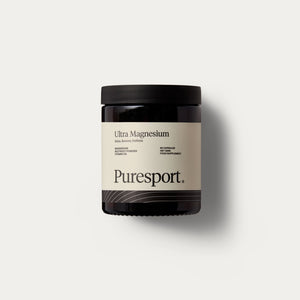Where Does Black Pepper Come From?
Black pepper is harvested from the black pepper plant, which has the scientific name piper nigrum. The plant itself is a flowering vine, but the peppercorns that we harvest for black pepper are the plant’s fruits (or, more technically, drupes). Before being dried, the peppercorns are dark red.
When first discovered, black pepper was native to India’s Malabar Coast, though it has since been brought to other regions with similar climates to be more easily harvested. Impressively, black pepper is the single most commonly traded spice in the world, and one of the most common table spices you’ll find worldwide.
The spicy flavour of black pepper comes from the compound piperine. The reason why black pepper tastes different to other peppers is because it doesn’t contain capsaicin, which is the compound that is present in peppers like chilli peppers, giving them their characteristic burn.
Health Benefits of Black Pepper
Rich in Antioxidants
Antioxidants are foods and supplements that can help scoop up the free radicals that are in your tissues. In most cases, free radicals are formed by bodily processes, though they can also be caused by pollution and the sun’s rays, and they are known to contribute to ageing and disease formation.
Black pepper’s main compound, piperine, is a powerful antioxidant, and studies show that it can help reduce the harm of free radicals. Studies have been conducted on mice in which one group has black pepper in their food and another doesn’t, and the group with black pepper had far less free radical damage after the study.
Anti-Inflammatory
So is black pepper good for you? Its role as an anti-inflammatory may point to that being the case. Inflammation can lead to conditions like diabetes, arthritis, heart disease, and even cancer. Studies have been performed to determine if piperine can help stop inflammation and the preliminary results are promising.
Some examples include a study on rats suffering from arthritis. Once treated with piperine, these rats experienced less swelling in their joints as well as less evidence of inflammation in their blood. Yet another study on mice determined that piperine helped reduce pulmonary inflammation caused by allergies and asthma.
What is Turmeric and Black Pepper Good For?
Turmeric and black pepper is essentially a match made in heaven because of the relatively low bioavailability of the curcumin in turmeric, which is the main active ingredient. Curcumin is responsible for many of the health claims about turmeric, including its antioxidant and anti-inflammatory properties.
Low bioavailability means that the body has trouble processing the curcumin in turmeric, but this is offset by the piperine that’s present in black pepper. Studies have shown that adding about 20 mg of piperine to a 2 gram dose of curcumin allowed it to be absorbed by the body with much greater ease.
While scientists don’t understand exactly how it works, they have two theories on why this is the case. The first one is that piperine allows the curcumin to pass through the intestines and into the bloodstream. On the other hand, it may make it easier for your liver to break down the curcumin.
Due to these results, turmeric and black pepper capsules UK suppliers have seen a surge in demand recently.
White Pepper vs. Black Pepper
White pepper and black pepper essentially differ in the way that they’re harvested, though both of them come from the black pepper plant. Black pepper, as we mentioned, is produced by taking the fruit of the plant and then drying it before grinding it into a powder to be put on food.
On the other hand, white pepper is made by picking the fruit when it’s ripe and then soaking it in water. After soaking them, the outer surface is removed so that the seed is all that remains and then that is ground up into a spice. White pepper tends to have less piperine than black pepper, making it less spicy and arguably less healthy.
Black Pepper Essential Oil
Black pepper essential oil benefits feature nowhere near the same body of scientific evidence as for black pepper itself. Most of the evidence that points to this essential oil being healthy for you is anecdotal at best, though that doesn’t necessarily make it dangerous to try as a potential cure for your ailments.
Some of its purported benefits include cramp and spasm relief, nasal congestion relief, and digestive relief.







